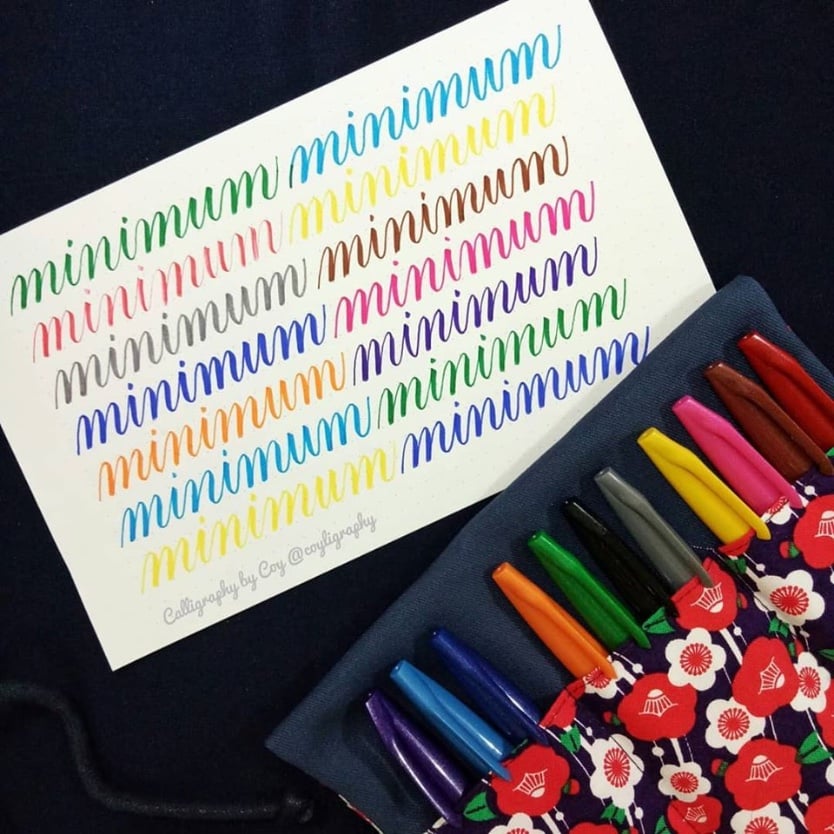





Sadly, this was a thing even before the web, let alone social media. There’s always been people for whom the vacations didn’t even “happen” unless they get to go on incessantly about them when they come back, ideally subjecting you to two hours of photos that mean very little to you. They derive little enjoyment from actually being there, they take it from showing it others…
For some people life is not worth living without external validation. Sad.
At this stage, apart from my medication, I worry the most about my devices and chargers. Everything else, from toiletries to clothes I can buy if it turns out I forgot it and really need it. That lowered my stress with packing significantly (and I am not forgetting more things because of it).


Alan Dix’s book (aptly named “Human Computer Interaction”) is quite good, even if somewhat old by now. HCI is an actual academic discipline with, yes, tons of theoretical and empirical results that govern what a good UI should be. Many of which are indeed grounded in psychology, others in physiology, etc (what we call Human Factors). There is a whole special interest group of the ACM just about it: SIGCHI.
Do not confuse this with fashion/trends/taste. These change, resulting in widely different possible flavors of UI over the years. But the underlying principles are the same.
Another thing to remember is that the fact that Apple, Google, or someone else implemented an UI in a certain way doesn’t mean they are following best practices and guidelines. Novelty sells, even if at the end of the day it does a worse job of things…
Edit: added link to SIGCHI
This is actually a thing. When learning calligraphy, it was one of the exercises we did. If you have good enough control of your hand and pen, then all strokes should be the same length, slanted the same way, and separated by the same spacing. When you manage this apparent “unreadable” thing, it means you nailed it!
The example below comes from this site (not mine)



Neat! I’ve always been a fan of roguelikes!
#Rogule 2024-3-25 🧝 4xp ⛩ 93 👣 streak: 1 🟩🟩🟩🟩⬜ ⚔ 🐺🐗🧛 🌰🌰 🍄


That makes total sense. Still, it removes the pressure of choosing a server, since migration and use of several servers becomes seamless. As it is right now, there’s the resilience and future lifespan of an instance to consider, plus fragmentation of your identify as defined not by your username but by your actual “online persona” constructed from your posts, etc. (unless you’re really going for alts, of course). You can create other identities on other instances but they are separate, you “lose” your posts, etc. if something happens. if I understood correctly, that becomes less of an issue with nomadic identity?


IMO, this seems exactly what the fediverse needs to thrive. The whole “choose a server” thing is a big disincentive to adoption by most people.


While I’m not entirely sure wat it actually means, the message you get on that site right now might be the reason (some kind of experiment gone wrong artificially inflating the numbers):
I was creating an implementation for the activity pub instance service transfer, but it seems to have spread far. We are very sorry to those who have experienced inconvenience.
All temporarily used data has been removed and all data has been removed. The figures in the data will soon converge to zero.
I trawled unintentionally.


Is federated authentication being considered for the future? The federated model of the fediverse is great, but it runs into problems when instances “die”, you want to access different servers as they federate with different things, etc. leading to the need of having multiple accounts. If there were a decentralized network of auth servers, could use the same credentials everywhere.


The ones with the rabbits are pretty messed up as well!



Your body, as a warm-blooded animal, tries to keep a constant temperature (around 98°F or 37°C). Thing is, the body is constantly producing more heat (your metabolism at work…) and needs to get rid of the excess. If the air around you is at the same temperature as you are, it is very hard for heat exchange to take place (for you to get cooler as the air gets hotter) and, thus, you overheat a bit and feel warm.
This is why wind makes you feel cooler: it moves the heated air away from your body and brings in new, cooler air, making the exchange more efficient. Evaporation takes heat away as well, hence we sweat to col ourselves down.